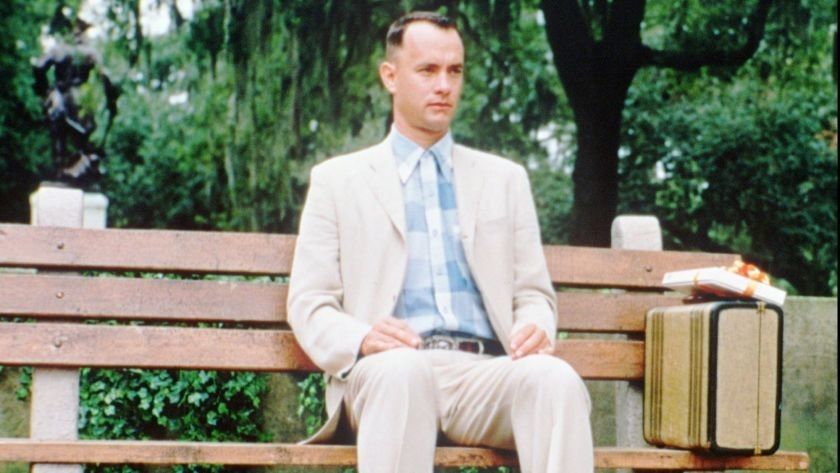
Tthey often are the guys around whom action occurs, either as witnesses or as characters at stake (The Chase, Little Big Man, Forrest Gump, A ghost story, Boyhood, American Beauty, Norman in A River Runs Through It, ...) They can also be victims (The Birds), manipulated people (I confess, The Third Man, The Graduate, Rosemary's Baby), change from active to passive (Psycho) or from passive to active (Vertigo), be adrift (The Passenger, Midnight Cowboy), have a personal reason for being passive (Casablanca), etc.


5 people like this
A passive protagonist is really hard to pull off well, IMO, and I don't think they're as common as you describe. The Joseph Cotton character in The Third Man, for example, is active as hell. The Jimmy Stewart character is literally obsessed in Vertigo.
Can you clarify what you mean by passive protagonist? In my mind, a protagonist must have a proactive impact on the plot to be the protagonist. If they are not influencing the people and environment around them, the story belongs to another character. Do you mean reactionary? I feel like that is different from passive and better-describes some of the examples you shared.
A passive protagonist is difficult to maintain throughout the entirety of a story without sacrificing or limiting character development. In some way, either physically or emotionally, they must become active to a certain degree to show progression.
what about writing an anti-hero role? Getting the audience to accept someone's major flaws, immoral behaviour, an affair etc but who ultimately does the right thing.
I think most people starting out already do this by accident. No need to try to do it on purpose.
I think you’re right, Jeff.
I’m not sure it’s skill that’s needed as much as sorcery. A character who simply observes the story isn’t really in the story. Like, how do you drive on a spare tire that’s still in your trunk? You don’t.
Morgan Freeman's character, RED, in Shawshank Redemption. The movie is told from his POV and Voice Over
Red was very proactive, from pleading for his freedom to helping Andy adapt to prison life.
1 person likes this
Dan - I'm not sure I would call Red 'passive'. He was a leader amongst his group. 'Resistant to change' might be a better description. After all, its Andy's steadfast resolve and belief in hope that leads Red to change in the end.
Hi Stephen,
Clarification. IMO,=> Protagonist:
Etymology: "A protagonist (from Ancient Greek πρωταγωνιστής (protagonistes), meaning 'one who plays the first part, chief actor') is a main character of a story" (Wikipedia).
- Either active or passive, the protagonists are "characters whose fate is most closely followed by the audience" (from Wikipedia).
=> Active:
- Either stumbling or leading action, an active character deliberately drives the plot forward.
=> Passive:
- Either interested or not in the action, a passive character does not deliberately drive the plot forward. That's done by other characters or by events.
Three examples:
1 - In The Chase https://en.wikipedia.org/wiki/The_Chase_(1966_film) Anna (Jane Fonda) and Charlie (Robert Redford) are the passive preys of a group of vigilante. A great plot-driven psychological/action movie.
2 - In Little Big Man https://en.wikipedia.org/wiki/Little_Big_Man_(film) Jack Crabb, is passively torn between Native and European cultures depending on events. A great plot-driven historical satire.
3 - In I Confess https://en.wikipedia.org/wiki/I_Confess_(film) Father Logan being bound by the secret of confession is forced to stay passive until the end of the movie. A great underrated suspense/drama.
=> Reactive:
- Either active or passive characters can be reactive.
Two examples:
1 - In The Third Man https://en.wikipedia.org/wiki/The_Third_Man Holly Martins is manipulated by other protagonists/antagonists due to his impulsive but predictable reactions. These guys are the active characters. A great psychological character-driven movie.
2 - In Casablanca https://en.wikipedia.org/wiki/Casablanca_(film) Rick is firstly and for almost the entire movie passive. He reacts against Lazlo when Ilsa appears, then changes his mind when she reveals she still loves him. He finally becomes active in the end when double crossing everybody to make Ilsa and Lazlo fleeing together. A great plot-driven drama.
Eric, Jim, Stephen,
I disagree. Passive protagonists are often the subjects of great character studies, as for Father Logan in I confess or Joe and Ratso in Midnight Cowboy, Forrest in Forrest Gump or Jack Crabb in Little Big Man. As stated before, they can change like Scottie in Vertigo (passive in the first half then active in the second half), etc.
Roger Rabbit also is a passive protagonist, along with Eddy Valiant who's the active one. There are countless ways of use of great passive protagonists, but it needs some skills to make them work.
Roger Rabbit is a fool whose purpose is to provide the inciting incident, be in the way of Eddie all along the movie and make people laugh. He has as much arc as standard horror or action-movie protagonists. Which doesn't mean that he's not a valuable character and that Who Framed Roger Rabbit is a bad movie.
1 person likes this
My definition of an active protagonist is a character who wants something and goes after it. I think that's pretty close to most writers' definition.
Joseph Cotton or Holly Martins in The Third Man wants to find out what happened to his friend, Harry Lime (and perhaps who he truly was), and he goes after it with a vengeance. That people are lying to him and trying to manipulate him equals obstacles in his way. In Vertigo, James Stewart wants the girl, Kim Novak, then after she dies, he wants her look-a-like, and then he wants to find out whether the original Kim and the look-a-like are one in the same and if so why.
Now I agree there are passive protagonists, Jean-Marie, such as Forrest Gump. One of my personal favorites is Chance the Gardener or Peter Sellers in Being There. But they are the exception, not the rule, it seems to me.
In all those examples, the characters consistently took actions to influence their circumstances, which is not passive. Storytelling as art and craft is about a person pursuing something they want. Inaction negates this function, so a truly passive protagonist ceases to be a protagonist. But what happens when a character actively pursues a passive lifestyle, like in Remains of the Day? Anthony Hopkins’ character had to expend a lot of effort to have so little impact on the world. Though he was a passive man, he was not a passive protagonist.
Stuart Wright American Beauty : OK for the opening sequence, which is just exposition. And then?
Eric Christopherson I agree about The Third Man and Vertigo provided you consider that "reactive" means "active". IMO, it should not. A reactive protagonist is only a puppet manipulated by events (plot driven) or other characters (character driven), which is the case in both movies:
- In The Third Man, Cotten acts like a weathercock, changing his mind each time something new happens. He never follows a linear path he built himself, never takes the initiative, contrary to Howard and Welles.
- In Vertigo, it is the same all along the first half for James Stewart. His obsession for Kim forces him to stay passive, just as the obsession of her remembering forces him to become active in the second part.
Anyway, even if removing these ones, there are too many (and great!) exceptions to make active protagonists the rule ;)
Stephen Floyd In the first 8 ones, the main characters don't take any significative action related to the plot, except trying to protect themselves in The Chase and The Birds. In Forrest Gump, the only Forrest's interest is his story with Jenny, which is just a background to the main plot. Would you say that there is no protagonists in these movies?
Disambiguation: A protagonist is just a central character of a story, either it is active, reactive, passive or it changes during the story :
https://www.merriam-webster.com/dictionary/protagonist
https://dictionary.cambridge.org/dictionary/english/protagonist
Playing with passive protagonists is also a great way to lure the audience:
In The Usual Suspects, "Verbal" Kint looks totally passive either in action scenes or during his interrogation ... until the final twist.